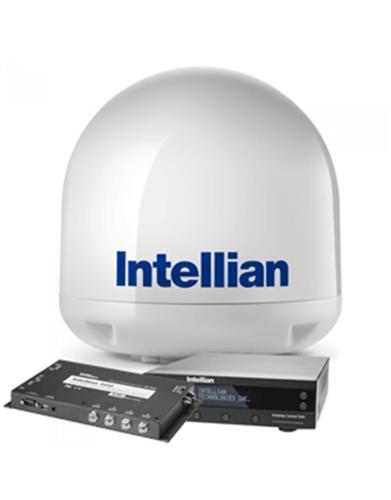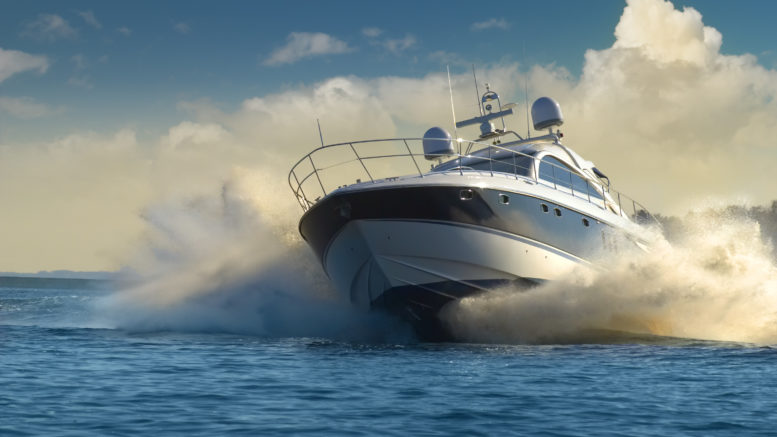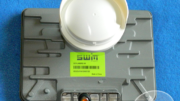Hey marine fans, I get it. You don’t go out on the water to watch TV. But, a lot of people do put some sort of TV system on their boats. If you’re staying on the boat overnight, it’s nice to sit back and relax below decks. It’s also nice to have the ability to have “tailgate” parties on the boat where you bring friends onboard to enjoy a game while also enjoying the water. Satellite TV is one of the most popular upgrades for a boat, but if you’re running an average size cabin cruiser, you’ll need to choose your options carefully.
Traditional TV
Obviously, you’re not going to be able to get cable TV on your boat. I mean, unless you’re in the marine, you’re not going to be able to connect a cable, which ends up being the problem. That’s why satellite TV has been the provider of choice since the mid-2000s. Satellite TV gives you the ability to watch live, even 50-100 miles offshore. There’s no data cap or anything like that, and you can even add DVR service unless your boat is owned by your business.
I’m sure you know at this point that there are two providers for satellite TV in the US. Each works a little differently on the water, and it’s worth comparing the two. By the way, Signal Connect is a DIRECTV and DISH dealer and we handle more marine satellite activations than anyone else in the world!
Size matters
The answers here are really targeted toward owners of personal craft. If you have a boat that can handle a 60cm satellite antenna, the answers will be different. Most boats with just one or two cabins will work better with a 30cm antenna.
Satellite antennas look like this:

While there are some cosmetic differences, the real difference is the size. A 30cm dish is going to be about 20″ wide and 24″ tall. A 60cm dish is about double that size and double that weight. It might not be the right choice for a smaller boat. The 60cm dish is also more expensive, which may make a difference to you as well.
The different satellite providers behave the same more or less if you have a 60cm dish, but if you have a 30cm dish they behave somewhat differently.
DIRECTV
As I write this in 2023, DIRECTV’s programming for marine customers is almost all in standard definition. Their HD and 4K content is on satellites that a 30cm dish can’t receive. With a 30cm dish you’ll get about 5 HD channels as I write this. However, you’ll get all the national SD channels without having to move the dish. This means that no matter which channel you turn to, you’ll get faster channel changes.
DISH
DISH has high definition programming that’s available with its 30cm dish. However, the channels are split between multiple satellites. This means that sometimes, when you change channels, it can take up to a minute before you get to a live TV picture. Smaller satellite antennas can only look at one satellite at a time, which accounts for the issue.
Internet
Depending on where you plan to sail, you have two choices for internet on your boat: cellular and satellite. Both have their advantages, but one costs a lot more as it delivers a lot more. With an internet connection, you can watch TV, but it does use a lot of data. That may mean a higher cost. What are your options? Let’s take a look.
Cellular internet
Cell signals travel very well over water. The air over the water can be very still, and there aren’t any buildings blocking your view of the towers. That’s why I generally say you can get cellular internet up to 10 miles offshore, more commonly up to 5 miles offshore. If you’re on land you generally need to be within 1.5 miles of a tower. That’s a big difference.
You probably already have a data plan with your phone. So, as long as you get a cell signal you’ll have internet. But, due to the way your boat is made, you probably won’t get signal below decks. You can solve this by using a vehicle cell phone signal booster like this one. It will help pull in those distant signals and pump them out to the lower decks.
If you want to use a computer, streaming box, or anything else that needs Wi-Fi, you can get a cellular router. This is a device that turns cell signals into Wi-Fi. On a boat, you’d need both a cell booster and a router, because the router does sit below decks. The router also requires its own data plan, but the data plans are pretty reasonable and there’s a lot of value in having Wi-Fi if you’re going to be on the boat a while.
Satellite internet
Satellite internet is a great choice for boaters, to be sure. You can get true high speeds up to 100 miles off shore with traditional satellite internet. LEO systems like Starlink can give you service pretty much anywhere on the planet.
There are issues with satellite internet, and the biggest one is cost. Be prepared to spend in the mid-4 figures for the equipment, and the data plans cost about 10-15 times more than a comparable cell phone plan. If you want an experimental system like Starlink, you should budget for replacing that equipment every 18 months or so, sometimes sooner.
However, if you really need a reliable offshore full-time connection, there’s no substitute for what you get with satellite internet.
Where can I get more information? Who can hook me up?
Getting these services put into your boat isn’t as easy as calling your local provider. You need a dealer who specializes in marine products. If you call DIRECTV, DISH, or even most satellite internet companies, they’ll just shrug. They don’t know how to service marine customers. Luckily someone out there has your back.
Signal Connect is the world’s leading satellite activation specialist. We are authorized dealers for all the major TV, cellular, and internet companies and we can even help you with Starlink if you want to go that way. Call us to get the kind of personalized service you deserve. We have people on the line who are really trained in working with marine issues. We don’t run overseas call centers… we run an operation in the US that’s here to help.
Call us at 888-233-7563 or use the chat button at lower right, if it’s during East Coast business hours. If it’s after hours, fill out the form below. We’ll get right back to you!





